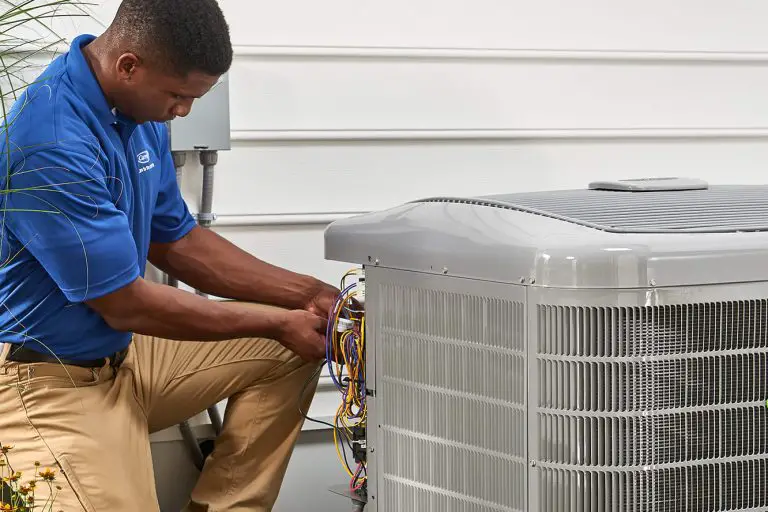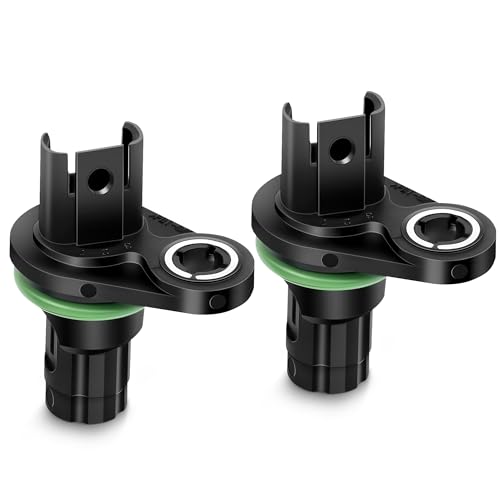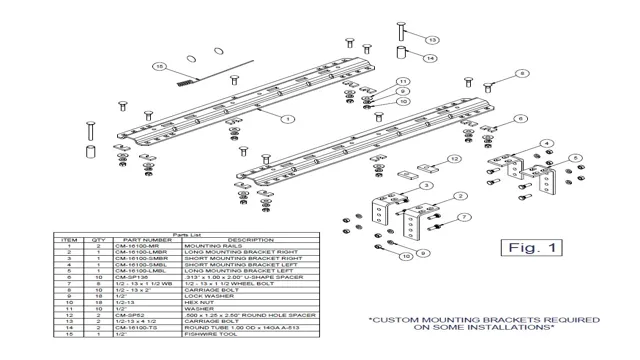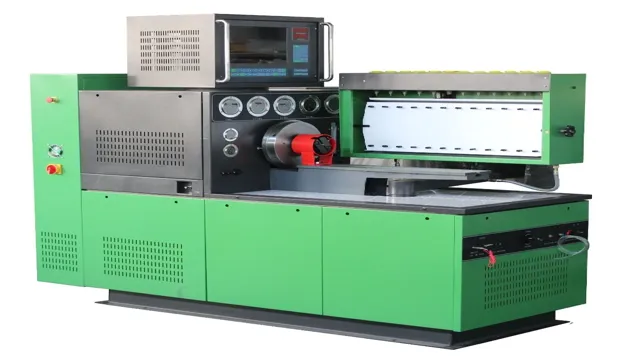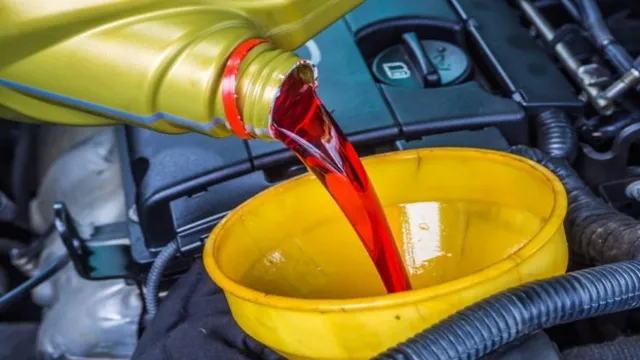Symptoms Of A Bad Turbo On 6.4 Powerstroke (Explained 2023)
The 6.4 Powerstroke engine has earned a reputation for its impressive power and performance in diesel trucks. However, like any mechanical component, the turbocharger in a 6.4 Powerstroke can experience issues over time. Detecting the symptoms of a failing turbocharger is crucial to preventing further damage and maintaining the engine’s efficiency.
In this blog post, we will delve into the symptoms that signal a bad turbocharger in a 6.4 Powerstroke engine. Understanding these telltale signs can help you identify potential problems early on, seek professional assistance, and take appropriate measures to rectify the issue.
From decreased engine power and increased exhaust smoke to abnormal turbocharger noises and poor fuel efficiency, we will explore the various symptoms that indicate a failing turbocharger. Equipped with this knowledge, you can promptly address turbocharger issues, ensuring the smooth operation and longevity of your 6.4 Powerstroke engine.
So, if you’re curious to learn more about the symptoms of a bad turbocharger in a 6.4 Powerstroke, join us as we delve into this essential topic and empower you to take proactive steps for turbocharger maintenance and repair.
Signs Of A Bad Turbo On 6.4 Powerstroke
The 6.4 Powerstroke engine is equipped with a turbocharger that plays a crucial role in enhancing performance and power. However, over time, the turbocharger can experience issues that affect engine performance. Here are some common signs of a bad turbo on a 6.4 Powerstroke:
1. Decreased Engine Power
One of the primary indications of a failing turbocharger is a noticeable decrease in engine power. You may experience a lack of acceleration, reduced towing capacity, or overall sluggishness during driving.
2. Increased Exhaust Smoke
A failing turbocharger can lead to an increase in exhaust smoke, particularly when the engine is under load. You may notice thick black smoke or blue smoke, which indicates an imbalance in the air-fuel mixture or oil leakage into the combustion chamber.
3. Abnormal Turbocharger Noises
A failing turbocharger can produce unusual noises. You may hear a whining or scraping sound coming from the turbocharger area, indicating issues with the bearings or compressor wheel. These noises are typically more prominent during acceleration or deceleration.
4. Poor Fuel Efficiency
A malfunctioning turbocharger can impact fuel efficiency. If you notice a sudden decrease in mileage or find yourself refueling more frequently without any change in driving habits, it could be a sign of a bad turbocharger.
5. Boost Pressure Problems
The turbocharger is responsible for generating boost pressure, which increases power and performance. A failing turbocharger may result in inconsistent or fluctuating boost pressure, leading to irregular engine performance and reduced power delivery.
What Are The Symptoms Of A Bad Turbo On 6.4 Powerstroke?
A bad turbocharger on a 6.4 Powerstroke engine can manifest through several noticeable symptoms. Here are the common signs to look out for:
1. Decreased Engine Performance
A failing turbocharger can result in a noticeable decrease in engine performance. You may experience a loss of power, reduced acceleration, and difficulty reaching higher speeds. The engine may feel sluggish and less responsive overall.
2. Increased Exhaust Smoke
A malfunctioning turbocharger can lead to an increase in exhaust smoke. You may observe excessive black smoke, indicating unburned fuel, or blue smoke, which suggests oil is being burned in the combustion chamber. Both situations indicate an imbalance in the air-fuel mixture or oil leakage into the exhaust system.
3. Whining or Whistling Noises
A bad turbocharger may produce abnormal noises. You may hear a whining or whistling sound, which can indicate issues with the turbocharger’s bearings or a damaged compressor wheel. These noises are typically more pronounced during acceleration or under load.
4. Oil Leakage
If you notice oil leaks around the turbocharger or excessive oil consumption, it could be a sign of a failing turbo. A damaged or worn-out turbocharger may allow oil to escape into the intake or exhaust system, resulting in oil leaks or a decrease in oil levels.
5. Boost Pressure Problems
The turbocharger is responsible for generating boost pressure, which enhances engine performance. A failing turbocharger can cause inconsistent or fluctuating boost pressure, leading to irregular power delivery, surging, or a loss of boost altogether.
6. Check Engine Light
A malfunctioning turbocharger can trigger the check engine light to illuminate on the dashboard. The engine control unit (ECU) detects irregularities in the turbocharger’s performance and alerts you through the warning light.
What To Do When You Detect A Bad Turbo On 6.4 Powerstroke?
If you detect a bad turbo on your 6.4 Powerstroke engine, it is crucial to take immediate action to prevent further damage and ensure the proper functioning of your vehicle. Here are the steps you should follow when you detect a bad turbo:
1. Confirm the Diagnosis
It is recommended to consult with a qualified mechanic or a reputable diesel engine specialist to confirm the diagnosis of a bad turbocharger. They will perform a thorough inspection, including a visual examination and potentially a diagnostic scan, to identify the root cause of the issue.
2. Repair or Replace the Turbocharger
Depending on the severity of the turbocharger’s condition, your mechanic may recommend either repairing or replacing it. In some cases, minor issues such as damaged seals or loose connections can be repaired, while more significant damage may require a complete replacement of the turbocharger.
3. Consider Upgraded Options
If you need to replace the turbocharger, it may be worth considering upgraded options that offer improved performance and durability. Upgraded turbos designed specifically for the 6.4 Powerstroke can provide enhanced power, better fuel efficiency, and increased reliability. Consult with your mechanic or diesel specialist to explore the available options.
4. Inspect and Clean the Intake System
When replacing or repairing the turbocharger, it is essential to inspect and clean the intake system thoroughly. This includes checking the air filters, intercooler, and related components for any debris, oil residue, or blockages that may have resulted from the turbocharger failure.
5. Perform a Test Drive and System Check
After the repairs or replacement, it is recommended to perform a test drive to ensure the turbocharger is functioning correctly. Monitor the boost levels, listen for any abnormal noises, and check for smoke or other signs of issues. Additionally, have the mechanic perform a system check to verify that the engine is operating within the manufacturer’s specifications.
What are the common reasons that lead to turbocharger failure?
Several common reasons can lead to turbocharger failure:
1. Carbon deposits: Over time, carbon buildup in turbochargers can create heat spots and cracks in the turbo housing, as well as cause failure of the impeller shaft bearing.
2. Blocked catalytic converter: A blocked catalytic converter can increase back pressure in the exhaust system, disrupting the turbo’s performance.
3. Poor lubrication: Inadequate lubrication can result in sludge buildup, poor oil circulation, blockage of the oil feed passage, and eventual failure of the oil seal and bearing components.
4. Poor driving practices: The lifespan of a turbocharger can be significantly influenced by driving habits. Driving or revving hard without allowing the turbocharger to spool down after heavy loading can lead to rapid wear in the bearings, seals, and impeller shaft areas.
5. Ruptured pipes and intercoolers: Wear and tear on components such as oil feed pipes, breather hoses, boost pipes, and intercoolers can contribute to turbocharger failure and reduced engine performance.
Regular inspection of these parts by specialized technicians during Ford servicing is advised.
Is Replacing A 6.4 Powerstroke Turbo Typically Expensive?
Yes, replacing a 6.4 Powerstroke turbocharger can be a significant expense due to the complexity and specialized nature of the component. The cost of a replacement turbocharger can vary depending on factors such as the brand, whether it is a new or remanufactured unit, and the specific model of your vehicle.
On average, a replacement turbocharger for a 6.4 Powerstroke can range from $1,000 to $3,000 or more, depending on the quality and specifications of the turbocharger. It’s important to note that these figures are estimates, and the actual cost may vary based on various factors, including the supplier, location, and pricing policies of the repair shop.
In addition to the cost of the turbocharger itself, there may be additional expenses involved in the replacement process. These can include labor charges for removing and installing the turbocharger, any required gaskets or seals, and potentially other related components or services depending on the specific situation.
To get an accurate cost estimate for replacing a 6.4 Powerstroke turbocharger, it is recommended to consult with reputable diesel repair shops or dealerships. They can assess your specific needs, provide you with a detailed breakdown of the expenses involved, and guide you through the process of selecting the most suitable turbocharger option for your vehicle.
How Often Should You Inspect Or Service A 6.4 Powerstroke Turbo?
Regular inspection and servicing of a 6.4 Powerstroke turbocharger are essential to ensure its optimal performance and longevity. While the specific interval may vary depending on various factors such as driving conditions, maintenance history, and manufacturer recommendations, it is generally recommended to follow these guidelines:
1. Regular Visual Inspection
Perform a visual inspection of the turbocharger during routine maintenance intervals or whenever you have the opportunity to inspect under the hood. Look for any signs of oil leaks, damage to the housing, loose connections, or excessive play in the turbine or compressor wheel. If you notice any issues, further investigation or professional assessment may be necessary.
2. Oil and Filter Changes
The turbocharger relies on a continuous supply of clean and high-quality engine oil for proper lubrication and cooling. Follow the recommended oil change interval for your specific vehicle, ensuring that the correct oil specification is used. Regularly change the oil filter as well to prevent debris and contaminants from entering the turbocharger.
3. Air Filtration
Adequate air filtration is crucial for the proper functioning of the turbocharger. Ensure the air filter is clean and free from debris or clogging. Regularly inspect and replace the air filter according to the manufacturer’s recommendations to maintain optimal airflow to the turbocharger.
4. Regular Engine Maintenance
Proper maintenance of the entire engine system, including the fuel system and cooling system, is essential for the health of the turbocharger. Follow the recommended maintenance schedule for your 6.4 Powerstroke engine, which typically includes regular fuel filter changes, coolant flushes, and system inspections.
5. Professional Inspection
It is advisable to have your 6.4 Powerstroke turbocharger inspected by a qualified mechanic or a specialized diesel engine technician at regular intervals or if you suspect any issues. They can perform a thorough assessment of the turbocharger’s condition, check for any potential problems, and provide appropriate maintenance or repairs if required.
Who are the professionals at Diesel Pickup Pros, and what services do they offer for Ford Powerstroke turbochargers?
At Diesel Pickup Pros, our team of specialized and experienced professionals are experts in servicing Ford Powerstroke and other diesel pickups. Located in Floyds Knobs, we also cater to clients in Georgetown, Jeffersonville, New Albany, IN, and Louisville, KY. We are dedicated to thoroughly investigating the root causes of turbocharger failures and providing top-quality repair services. Our workshops are fully equipped with factory-grade tools and equipment to ensure high-quality repairs. Additionally, we pride ourselves on offering affordable services and repairs. Contact us today to schedule an appointment and let us take care of your turbocharger needs.
Frequently Asked Questions
Q: What should I do if I suspect a bad turbo on my 6.4 Powerstroke engine?
A: If you suspect a bad turbo on your 6.4 Powerstroke engine, it is advisable to have the issue diagnosed by a qualified mechanic or a reputable diesel engine specialist. They can perform a thorough inspection and diagnostic tests to determine the exact cause of the problem. It is best to visit our professional service center to diagnose and fix your turbocharger defects. Based on their findings, they can then recommend the necessary repairs or replacement of the turbocharger.
Q: Can I continue driving with a bad turbo on my 6.4 Powerstroke?
A: It is not recommended to continue driving with a bad turbo on your 6.4 Powerstroke engine. A failing turbocharger can lead to further damage to the engine and other components if left unaddressed. It is best to have the issue resolved promptly to prevent potential engine issues and ensure optimal performance.
Q: Can a bad turbo be repaired, or does it need to be replaced?
A: The repairability of a bad turbo depends on the extent and nature of the damage. In some cases, minor issues such as damaged seals or loose connections can be repaired. However, significant damage to the turbocharger’s internal components may require a complete replacement. A professional assessment can determine whether repair or replacement is the appropriate course of action.
Q: How much does it cost to replace a 6.4 Powerstroke turbo?
A: The cost of replacing a 6.4 Powerstroke turbocharger can vary depending on factors such as the brand, whether it is new or remanufactured, and where you have the replacement performed. On average, the cost of a replacement turbocharger for a 6.4 Powerstroke can range from $1,000 to $3,000 or more, including the cost of parts and labor.

